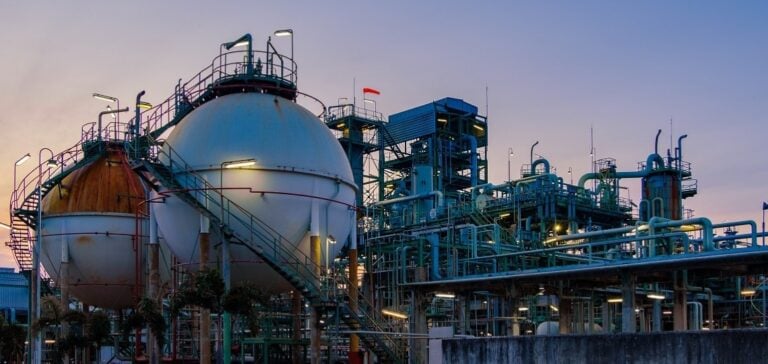The outlook for winter 2024 in France looks stable on the energy front.
With gas stocks 90% full as of September 10, 2024, the situation is inspiring confidence among industry players.
The rate of filling of reserves is ahead of previous years, when this level was generally reached later in the autumn.
This early storage strategy is part of a drive to ensure security of supply by anticipating any fluctuations in demand or extreme weather conditions.
Supply conditions for liquefied natural gas (LNG) remain favorable, helping to maintain an adequate supply to the French market.
At the same time, gas consumption remains stable, with no indications of a significant increase to date.
The aim is to minimize the risk of energy shortages during peak periods, while guaranteeing a smooth, regular supply.
Consequences of stopping Russian transit via Ukraine
The announced end of Russian gas transit via Ukraine from December 31, 2024 creates a new dynamic for European supplies.
Ukraine has declared that it will not renew its contract with Russia, a decision that comes against a tense geopolitical backdrop.
Experts believe that this situation could create uncertainty for gas supplies to several Eastern European countries, but France seems better positioned to absorb this shock, thanks to its storage capacity and diversified supplies.
Since the start of the conflict in Ukraine in 2022, the European Union (EU) has been reducing its dependence on Russian gas, relying on alternatives such as LNG and Norwegian gas imports by pipeline.
In June 2022, the EU imposed legislation to reinforce the energy autonomy of member states, requiring them to fill their gas stocks to 90% by November 1 of each year.
This measure ensures a safety buffer in the event of sudden supply disruptions.
Managing and optimizing gas stocks in France
In France, gas network operators such as GRT Gaz and GRDF stress the importance of optimized reserve management.
According to their managers, current stock levels are satisfactory, but caution is still called for.
GRDF General Manager Laurence Poirier-Dietz stresses that stock building must remain flexible, and be adjusted according to market prices and demand forecasts.
This approach aims to maximize economic efficiency while preserving energy security.
Industry players are also calling for energy sobriety, recommending a measured use of available resources to avoid excessive pressure on the grid in the event of a severe cold snap.
This preventive approach is designed to reduce risks and optimize costs, while guaranteeing adequate supplies for all users.
Economic impact and strategic issues
The current situation, marked by increased diversity of supply sources, has a direct impact on gas prices and the strategies of companies in the sector.
LNG supplies in particular have helped stabilize prices, despite persistent geopolitical tensions.
This stabilization is essential for industries and consumers, as it enables them to plan their short- and medium-term energy needs with greater certainty.
The rise in Norwegian gas imports and the increased use of LNG show the need for France and Europe to further diversify their energy sources.
This diversification aims not only to meet immediate needs, but also to strengthen long-term resilience in the face of political and economic vagaries.
This is a question of energy sovereignty, which is becoming crucial as international tensions continue.
Vigilance needed for the future of energy
While Europe continues to adapt to changing supply flows, France, with its full inventories and proactive management, is in a strong position to face winter 2024.
However, the situation remains dynamic and requires constant vigilance.
Future decisions concerning LNG imports, investment in storage infrastructure and new sources of supply will be decisive in guaranteeing the stability and competitiveness of the French and European gas markets.
The stakes are many, and require close coordination between member states, regulators and industry players to ensure sustainable energy security.
The winter of 2024-2025 will be a test of Europe’s ability to manage its energy resources efficiently in a context of transition and volatility.






















